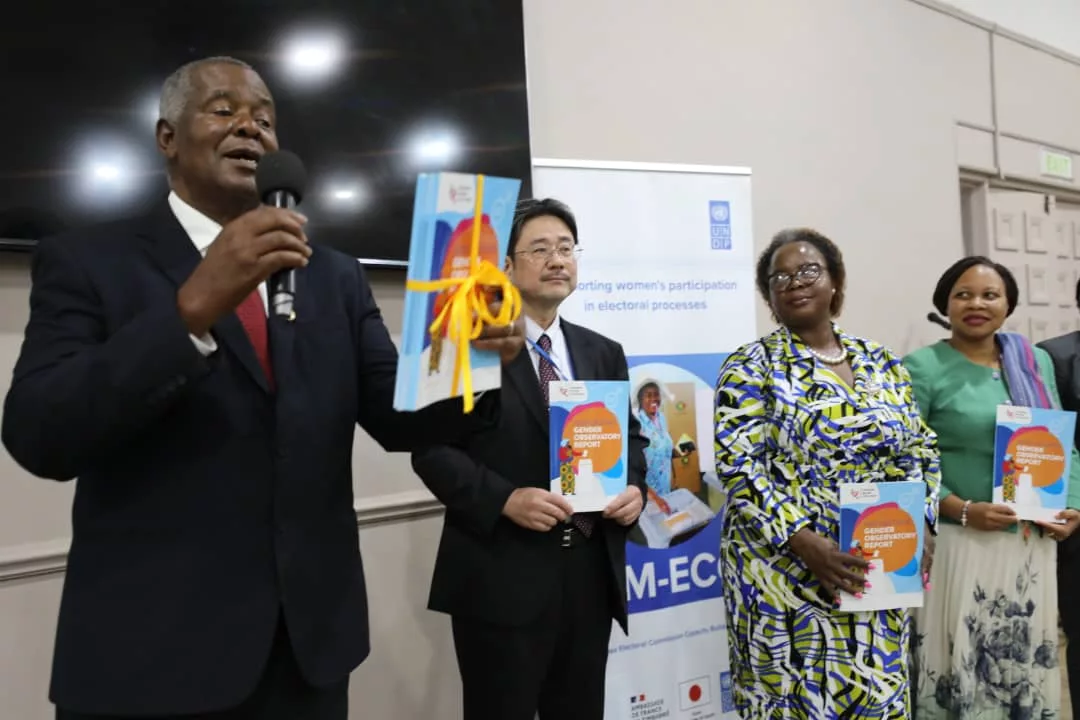|
Getting your Trinity Audio player ready...
|
The 2023 Elections Gender Observatory Report reinforces the fact that women continue to face significant barriers in their pursuit of political office.
These were part of the remarks by Tafadzwa Muvingi, the Head of Governance and Peace-building on behalf of the UNDP Resident Representative for Zimbabwe, Dr. Ayodele Odusola during the launch of the 2023 Elections Gender Observatory Report at the Cresta Jameson Hotel in Harare yesterday.
“Throughout the electoral cycle process and even within the political party processes there are known barriers. Many recommendations on these issues have been made, including in the report.
“The Gender Observatory has been a useful platform, bringing together very different institutions and partners to look at the election process from the gender perspective, but the work does not end with today’s launch of this report,” he said.
Addressing the same gathering, the Acting Chairperson of The Zimbabwe Gender Commission, Commissioner Obert Matshalaga said the findings presented in this report are a synopsis of the good practices, gaps, and challenges as well as recommendations to duty bearers on enhancing gender responsiveness of electoral and political processes in Zimbabwe.
He said it was however worrisome to note that the outcome of the 2023 Harmonised Elections reflects regressing trends in women’s political participation at all levels starting at the level of fielding of candidates to the outcome of the elections as follows:
Trend analysis: Candidates on the Ballot 2018/202
Women representation in politics: Direct Election Trend analysis 2013-2023
| 2023 | 2018 | |
| National Assembly | 12.3% | 11.9% |
| Local Authority | 16.2% | 13.3% |
Commissioner Matshalaga said the outcome of the 2023 election and the findings from the Gender Observatory continue to reinforce the already existing challenges to women’s political participation.
“The issue of women’s political participation now requires a broader multi-stakeholder approach – Political Parties, Government Ministries, Independent Commissions, Civil Society Organizations, and other institutions. We all need to embrace the recommendations outlined in this report and ensure that they are fully implemented. There is a need to continue pushing for the alignment of our electoral laws to the National Constitution, and for political parties to align their constitutions to the National Constitution especially to the provisions on gender equality so as to guarantee an equal playing field for men and women in politics.
“Further, there is a need to provide the necessary financial support to empower women and other marginalized groups to participate fully in electoral and political processes. I want to reiterate that the Zimbabwe Gender Commission stands ready to work with multi-sectoral partners to ensure that we continue to push for gender-responsive electoral and political processes in Zimbabwe,” he added.






